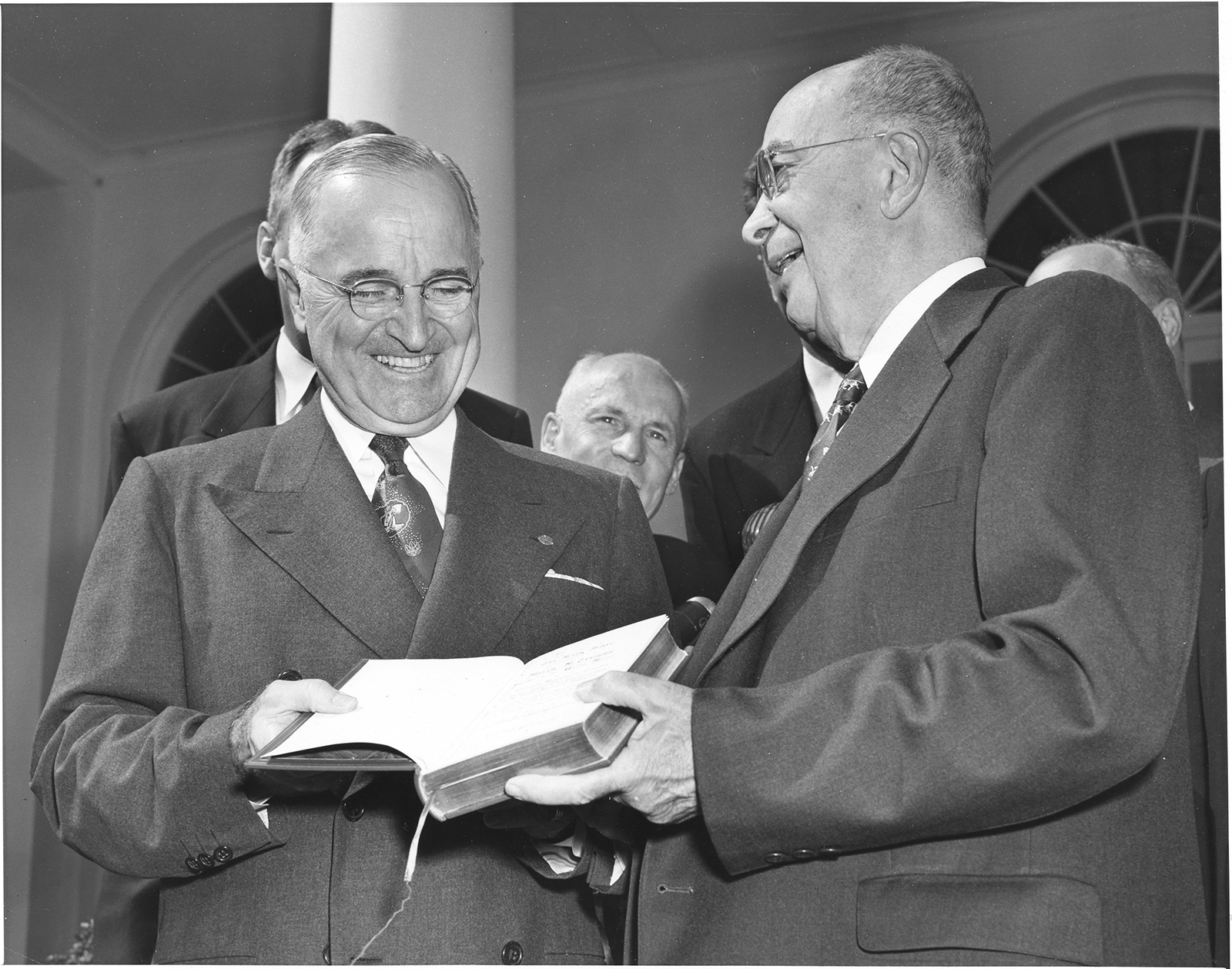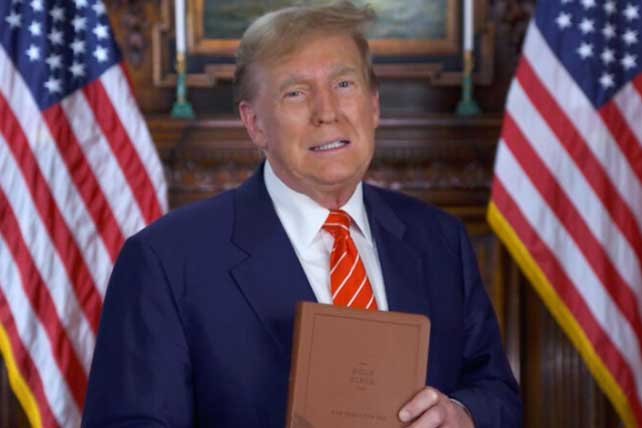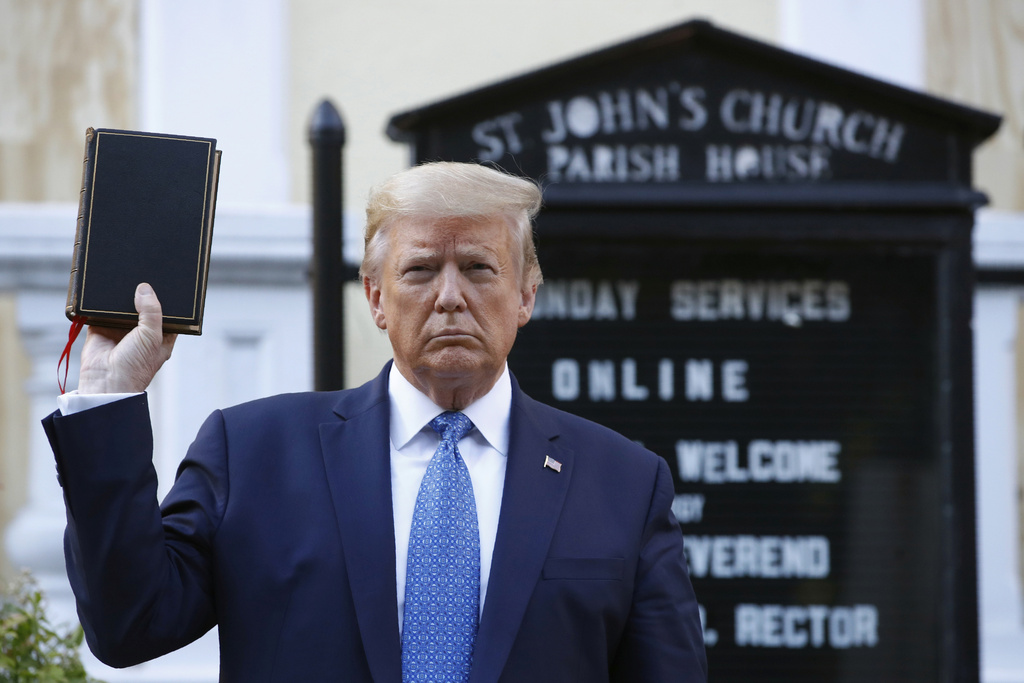Joy Reid, host of “The ReidOut,” another MSNBC show, called Trump’s Bible pitch blasphemy. “To Donald Trump, a Bible is no more sacred than a Trump board game. Or Trump water. It’s just another cheap tchotchke to sell to his followers.”
President Donald Trump holds a Bible as he visits outside St. John’s Church across Lafayette Park from the White House, June 1, 2020, in Washington. Trump is now selling Bibles as he runs to return to the White House. The presumptive Republican nominee released a video on his Truth Social platform urging his supporters to purchase the “God Bless the USA Bible.” (AP Photo/Patrick Semansky, File)
The Rev. Amanda Henderson, director of the Institute for Religion, Politics & Culture at the Iliff School of Theology in Denver and host of the “Complexified” podcast, said Trump is one of a long line of politicians and leaders in history who understand the power of religion as political tool.
“At a time when so many people feel a sense of loneliness or disconnection, he is tapping into the desire we all have to be part of something bigger,” she said. “We can’t dismiss that underlying need that people have to feel a sense of connection and belonging and to be a part of something bigger than themselves.”
Even as some religious leaders oppose Trump’s use of faith, said Henderson, they can’t afford to cede the discussion of faith to the candidate. The outrage expressed by Reid, Scarborough and others shows that the debate has spread beyond clergy to liberal Christians in the media and other sectors.
Brian Kaylor, author of “Baptizing America,” a forthcoming book about mainline Protestants’ role in promoting “God and country” patriotism, said that, as a result, religion has become one more thing tearing the country apart.

President Harry S. Truman, left, accepts a new Revised Standard Version of the Bible from Dean Emeritus of the Yale Divinity School, Luther A. Weigle, right, in a Rose Garden ceremony at the White House on Sept. 26, 1952. Weigle gave the book on behalf of the National Council of Churches as the chairman of the American Standard Bible Committee. Fifteen years of labor by 32 Protestant scholars went into the crafting of the RSV Bible, which was written in contemporary language. (Photo by United Press Associations. Harry S. Truman Library)
That was not always the case, said Kaylor. In the 1950s and 1960s, Americans rallied to a broad, consensual civil religion, reflected in the adoption of “In God We Trust” as the national motto and to add “Under God” to the Pledge of Allegiance. When translators of one of the most popular English translations of the Bible, the Revised Standard Version, finished their work after 15 years on the job, Kaylor pointed out, they presented President Harry Truman with a commemorative copy of the new translation in a Rose Garden ceremony.
At the time, 90% of Americans were Christians and largely viewed religion in a positive light, said Kaylor. Today, 80% of Americans say religion’s influence is on the decline, according to a new poll, while more than half of Americans rarely or never darken a church door.
“Civil religion worked in the 1950s and 1960s,” said Kaylor. “It no longer works today.”
Calvin University history professor Kristin Du Mez said the “God Bless the USA Bible” is an attempt to fire up those who remain devoted, though even the number of evangelical Christians is declining. “He’s going to need every one of those evangelical votes,” Du Mez said.


